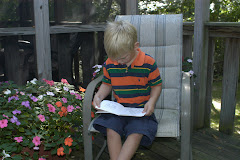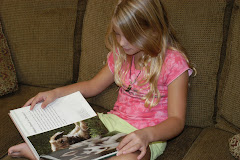Wishing
The last element in Lamb's information inquiry element is wishing. Wishing is the state of reflecting on the project and the process. It means taking an honest look and assessing the learning outcome and the end result. I think these questions are the most difficult because it is a challenge to be objective when I have invested a lot of effort into both the process and the product.
As far as the product, it was relatively easy to put a PowerPoint together for the culminating inquiry process. However, making final decisions about what information to delete or to include for final bullet point outline was more thought-provoking than I expected. I struggled providing specific examples that would connect with my audience. I think some of this is due to the fact that I do not know principals or teachers well.
The strength is found is the quality resources available to document reading methods. I think that this work would be well received based on its delivery. I also think that this is a pertinent topic that educators working with young children are interested in.
The weakness is that I believe the topic could further be directed or focused in a different way. As I began this topic search, I was sifting for research. However, I became intrigued with the idea of how teachers can incorporate trade books in their curriculum. The thought occurred to me that this slant in teaching reading would have been an intriguing pursuit. Also, I initially thought I would find new research that would give a fresh perspective on this redundant topic. However, I realized that the facts are similar to what they were several years ago. The challenge is to think of engaging ways this information can be utilized.
Something I could have done differently is not to focus on research, but various ways to communicate this information to parents. Parents have an enormous impact of their child’s reading success. Therefore, approaching parents with useful information may have the most impact of early literacy.
I think my own inquiry experience is similar to children and young adults. They come with a notion that is not clearly formulated and based on knowns and unknowns. Often their scope is too broad or too limiting, so they need to go back to the topic and ask questions. The process takes time. Children today may get frustrated with the amount of questioning, analyzing, assimilating, and synthesizing it takes to completely work through the information inquiry elements. Also, the process of recursion may cause feelings of frustration. It may seem like the project is back to a square one, when in reality, this is a normal part of the process. Children may be too hasty in trying to find quick resources instead of carefully using Stripling’s qualifiers for evaluating sources. Lastly, I think children and young adults may also want to get the project done instead of considering the audience that their project is directed toward.
Friday, October 5, 2007
Subscribe to:
Post Comments (Atom)



No comments:
Post a Comment